Brazilian soccer legend, Ronaldinho (my favorite soccer player of all time)
In 1997, Harvard professor, Clayton Christen, published a book called the Innovator’s Dilemma.
Essentially, the book and theory discuss the phenomenon of what happens when breakthrough businesses, with pioneering technologies, services, and products become the incumbent(s); but then overlook emerging technologies, companies, and entrepreneurs.
Though, as Peter Drucker mentions in his seminal book ‘Management’, “it is not true that ‘bigness’ is an obstacle to entrepreneurship” - the ‘innovator’s dilemma’ explains why large and commercially successful companies and entrepreneurs get disrupted. In a nutshell, once a company or entrepreneur succeeds, they often become over-protective of their market share and look to maintain the status quo and what has historically worked instead of staying “ten toes down”. This is because they are often incentivized to do so - they have proven product market fit, a high-value product or service, a lucrative customer base; perhaps interested shareholders and board of directors - and, as a result, are not as prone to take the same risks as smaller, nimbler companies and entrepreneurs. These pressures make it harder to make profitable long term bets, when dealing with short term constraints.
It reminds me of a scene from the movie, ‘The Big Short’.
In 2005, Michael Burry, a fund manager, decided to short the subprime mortgage market in a way which had virtually never been done. The only problem was that he had to pay premiums on this short position. In the short term, it looked like he was losing money and had made a costly mistake. Some of his investors flipped on him.. and he went through a lot.. but a few years later, the stock market crashed and he made “a personal profit of $100 million and a profit for his remaining investors of more than $700 million”. His firm “Scion Capital ultimately recorded returns of 489.34% between its November 1, 2000 inception and June 2008; while the S&P 500, widely regarded as the benchmark for the US market, returned just under 3%, including dividends over the same period”.
In a nutshell, the problem with the ‘innovator’s dilemma’ is that it causes those of us who “level up” to miss out on opportunities and become blind to emergent disrupting forces. In my view, this isn’t just applicable to large companies; but applies to each of us in our individual lives and careers as well.
How do we ensure we continue to progress in life and not stagnate or regress?
Here are three short stories to answer this question.
DO WHAT GOT YOU HERE.. BUT BETTER
The ‘Ronaldinho Air Force Ones’.. flames back in the day.
“You only start because you hustle!”
I’ll never forget those words. They were screamed by my junior varsity soccer coach. I had just given up a play, and he was incensed. He went on to make it clear to me that I wasn’t the most talented, skilled or biggest guy on the team; and the only reason why he was starting me was because of my hustle.. I gave 200% and never quit.
I think it’s also because I was fast (contrary to what my football playing friends thought); but I got the point.
I never forgot that lesson, and it has served me well; not only during my time playing junior varsity and varsity soccer; but in my career as well. My ability to hustle, do the work, and learn quickly has become a competitive advantage that makes up for any lack of skill, network, or money.
People often say “what got you to this level, won’t get you to the next level”. I’ve said it as well, and thought I believed it; but it’s an incomplete statement.
Yes, in life and business, we need to consistently improve in order to handle the increase responsibilities that come with success; but we succeeded for a reason. The innate qualities and insights that got us to this level are what we need to hold on to; we simply need to add to them and become better.
“If railroads had understood they were in the transportation business instead of the steel-rail business, we'd all be flying on union Pacific Airlines”
Bill Gates
You see an example of this in the music business. The first or second album of many artists are their most impactful or commercially successful. Usually because those albums are the culmination of several years of blood, sweat, and tears.
They were hungry.. and they put their whole selves into it.
But when they become “successful”, they ease up and think their success is an immovable quality that will perpetually ensure continued success; when really it was their drive, determination, and hustle that produced the success in the first place. Corporate and business interests also get in the way..
..and they forget to keep the main thing the main thing.
It’s important to focus on our core mission, and those aspects of ourselves and companies which brought us to the current level. Yes, we may need to make necessary adjustments and improvements; but we should also double down on those core and inimitable qualities that made us what we are.
The external results we see are simply manifestations of things that can’t be easily measured. Too often we fall in love with the shiny things, but we have to remember what it took to produce the shiny things..
..a lot of dirt and pressure probably.
THE POWER OF BROKE
In 2016, I was a broke law school graduate.. broker than broke.. and was trying to figure out my next move. I came across one of the most impactful books I’ve ever read by, businessman and investor, Daymond John.
‘The Power of Broke’ speaks to how the lack of finances and resources can be an advantage which leads to breakthrough(s), and how the abundance of resources often engenders lazy thinking which leads to poor(er) performance.
“I’m not suggesting that the only way to start a business is from a place of desperation—because, hey, why struggle if you don’t have to? But I am suggesting that there are all kinds of ways to turn every strike against you into an opportunity. I am suggesting that if you’re dealt a lousy hand, you can find a way to play it in a winning way. And I am suggesting that being broke can actually be an advantage for you in business—being broke forces you to be aggressive, creative, resourceful…all those good things. It forces you to be realistic about your pace of growth and keeps you from letting your hopes and dreams run away from you. It pushes you to think about what’s in reach. And it reminds you to keep true to yourself.”
Daymond John, ‘The Power of Broke’
There’s a quote which says, “Hard times create strong men, strong men create good times, good times create weak men, and weak men create hard times.”
I generally believe that. An abundance of resources can influence us to become overconfident, too comfortable, and lazy in our thinking, drive and determination. It’s a human condition, kind of like how familiarity creates contempt. The closer you are to someone, the easier it is to take them for granted. Think about how often we support or admire strangers and their businesses; but often don’t give that same honor to the people closest to us.
There are numerous examples of instances where a business or entrepreneur succeeds and becomes flush with money, resources, and opportunities; and starts to think that simply throwing money at things will solve problems.
They allow their past successes to convince them that they can’t fail when, in reality, many of the most innovative solutions came from years (or decades) of real world experience, struggle, and intimate domain expertise.
Daymond John, in his book teaches the importance of always relying on our innate resourcefulness.
I like to call it the hustle muscle.
In the music business or tech sector, many record labels and venture capitalists look to sign and fund artists and founders simply because they look, sound, and have similarities to successful Entrepreneur X..
..but do they have the real world experience and story Entrepreneur X has?
It’s not what’s on you, it’s what’s in you.
BOARD MAN GETS PAID
In 2019, the year he and his team won the NBA Championship, NBA player, Kawhi Leonard gave an account of his experience playing college basketball.
Entering college, Kawhi was “considered a four-star recruit, and was listed in the recruiting rankings of 2009 as the No. 8 small forward and the No. 48 player nationwide”. His outside shooting ability was also considered to be deficient; and he ended up playing basketball for San Diego State University.
While playing college ball, and during games, he would always say “board man gets paid”.
What he meant was there’s a value in being able to excel at the subtler things; things like getting boards (rebounds); and playing strong defense. He may not have been the most highly touted, flashy, and offensively prolific player; but he decided to outwork everyone else, concentrate on what he could control, and double down on his core competencies.
The decision served him well. Although he didn’t play for the most highly-touted collegiate basketball program, he was drafted in 2011 as the 15th player and began his NBA career with the San Antonio Spurs; developing from a role player into an elite superstar.
In 2019, during the final game of the NBA Finals against the Philadelphia 76’ers, Kawhi hit the game-winning shot at the buzzer.. an outside two-pointer from the corner.
“The shot bounced off the rim four times before falling to give the Raptors the 92-90 win in Game 7 and the first winning buzzer-beater in a Game 7 in NBA history”.
How’s that for shooting ability?
In 2021, Kawhi Leonard signed a 4-year guaranteed contract with the LA Clippers for one hundred and seventy-six million dollars.
Board Man got paid.
Elijah Adefope is a media, entertainment, and technology consultant and attorney. He is Lead Counsel at Substack, a media technology platform for creatives, and has written two books on the music and sports industries. He lives in Atlanta, Georgia and can be reached on LinkedIn or at elijah@thrivesportsent.com




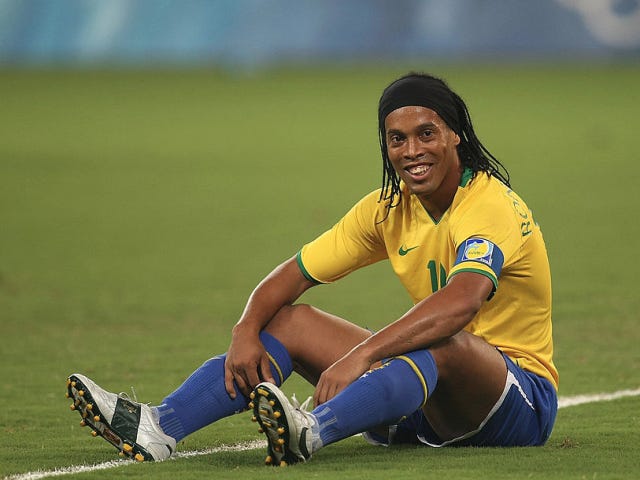
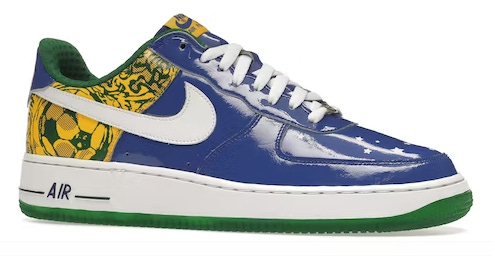
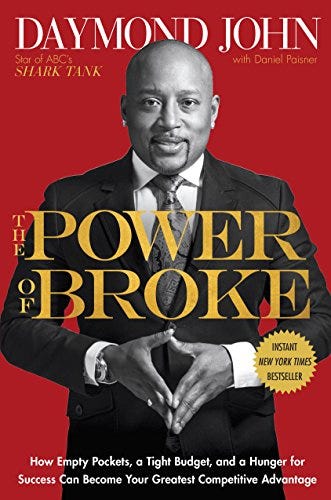
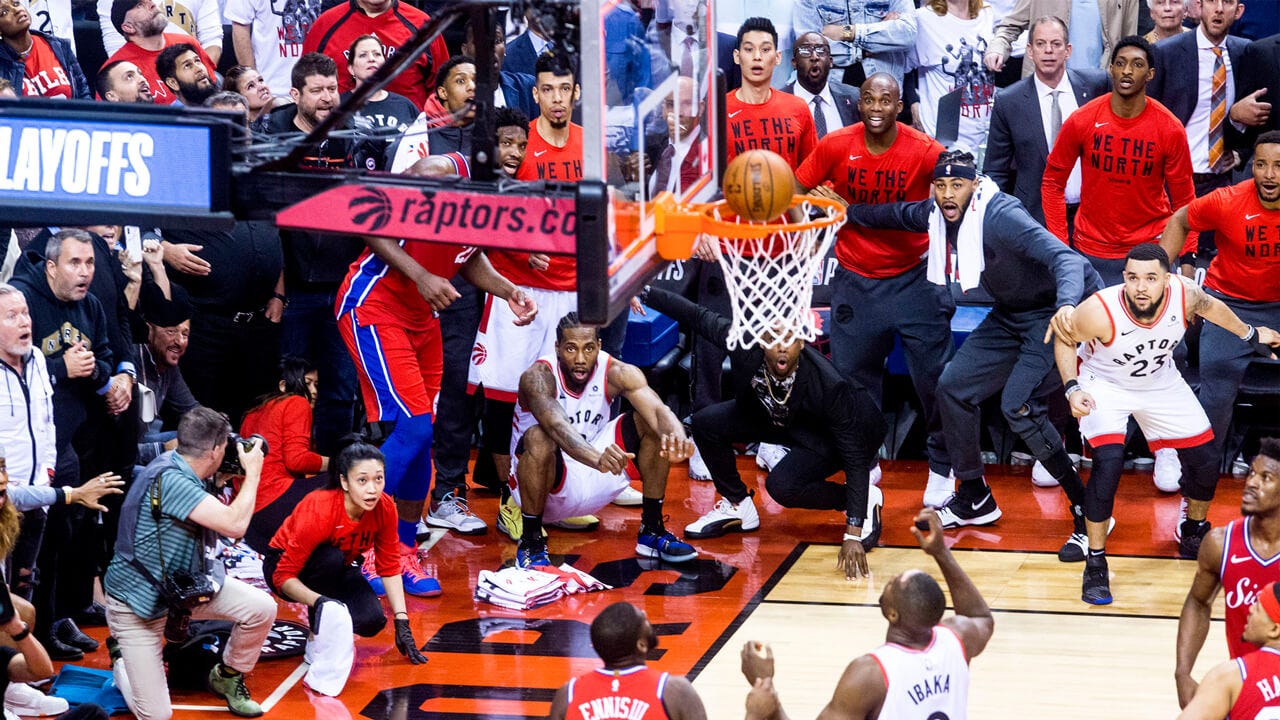
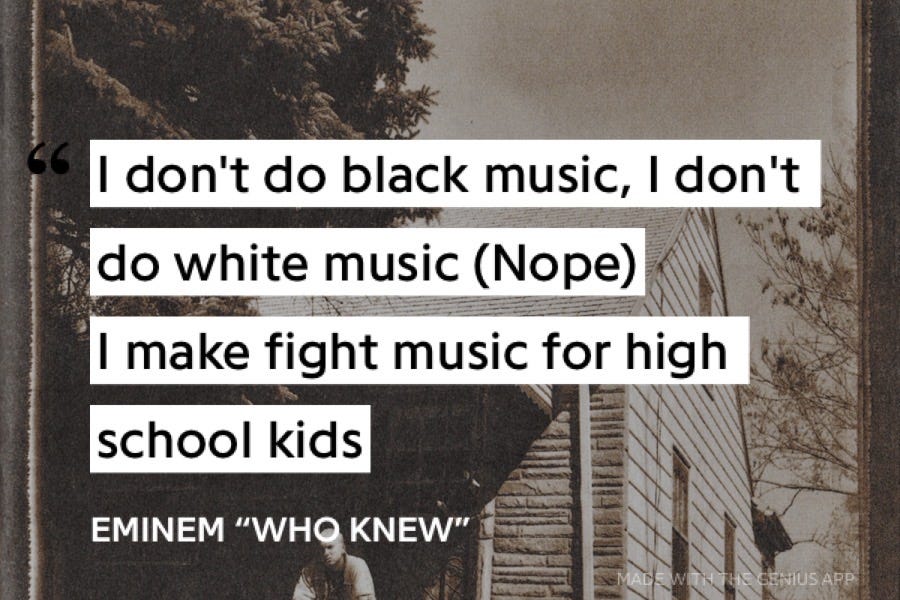
Shoutout to ronaldinho!